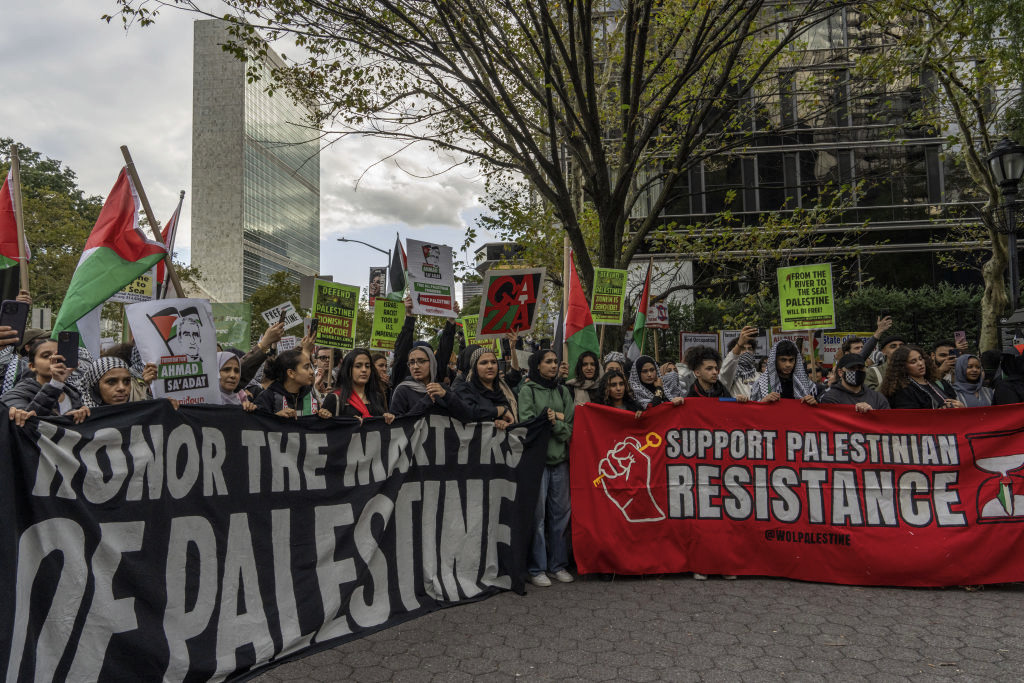
Student groups at many elite universities -- including Harvard, Yale and Columbia, CUNY -- have come out in support of Hamas at a time when its terrorists have raped, murdered and kidnapped women, toddlers, the elderly and other civilians, and have reportedly beheaded babies. The immoral groups that support such atrocities are composed of both students and faculty members. Many of these individuals hide behind their organizations' names and refuse to identify themselves. They do not want to be held accountable in the court of public opinion for their own despicable views.
The open marketplace of ideas, which I support, allows students to hold and express these views, but it also requires transparency so that the rest of us can judge them, hold them accountable and debate them.
There are, of course, rare occasions where anonymity is essential. For example, during the civil rights period of the 1960's, identifying members of civil rights groups endangered their lives. There is, however, no such fear here. Groups that oppose Hamas have not been known to advocate violence against those who support it. To the contrary, it is pro-Israel advocates who have been threatened with and suffered from violence.
The students who anonymously vote to support Hamas' recent attacks need not be fearful of anything but disdain and criticism. They should be willing to subject themselves to the marketplace of ideas. They should not resort to cowardly hiding behind the names of prominent organizations such as "Amnesty International at Harvard" -- one of the groups that said they "hold the Israeli regime entirely responsible for all" the massacres and rapes. They should be prepared to defend these immoral views.
Some students who belong to these organizations argue that they do not personally support Hamas' recent barbarities. They are free to say so and to dissociate themselves from the groups they voluntarily joined. Silence in this context is acquiescence. So is hiding behind anonymity.
Fellow students, future employers, and others should be able to judge their friends and potential employees by the views they have expressed. Teachers should not grade students based on their views. That is why anonymous grading is widely employed at universities.
As a university professor for 50 years, I would not grade down a student because she supported Hamas atrocities. Nor would I befriend or employ such a student. Freedom of speech is not freedom from being held accountable for one's speech. It is interesting that most of the counter-petitions protesting Hamas's activities contain the names of students and faculty, but that is far less true of petitions that support Hamas's atrocities. That is understandable because there is no reasonable defense for what Hamas has done. Those who support Hamas should be ashamed and shamed, and those who oppose Hamas should be praised. That, too, is part of the marketplace of ideas.
Today, too many students are judged by their "identity." Identity politics has replaced meritocracy. Being judged by one's support or opposition to Hamas barbarity is more justifiable.
Let the student newspapers, many of which are rabidly anti-Israel, publish the names of all students and faculty members who belong to groups that support and oppose Hamas. Hypothetically, if a club were formed at any of these universities that advocated rape or the lynching of African Americans, the newspapers would most assuredly publish the names of everyone associated with such a despicable group. Why is this different? Rape has become a weapon of war for Hamas, along with lynching, mutilation, mass murder and kidnapping. Expressing support for these acts, while constitutionally protected, is wrong. The answer to wrong speech isn't censorship; it is right speech, and transparency.
So let the names be published. Let the despicable students and faculty members who support Hamas stand up and defend their indefensible views, and let the marketplace of ideas decide who is right and who is wrong.
Alan M. Dershowitz is the Felix Frankfurter Professor of Law, Emeritus at Harvard Law School, and the author most recently of Get Trump: The Threat to Civil Liberties, Due Process, and Our Constitutional Rule of Law. He is the Jack Roth Charitable Foundation Fellow at Gatestone Institute, and is also the host of "The Dershow" podcast.


